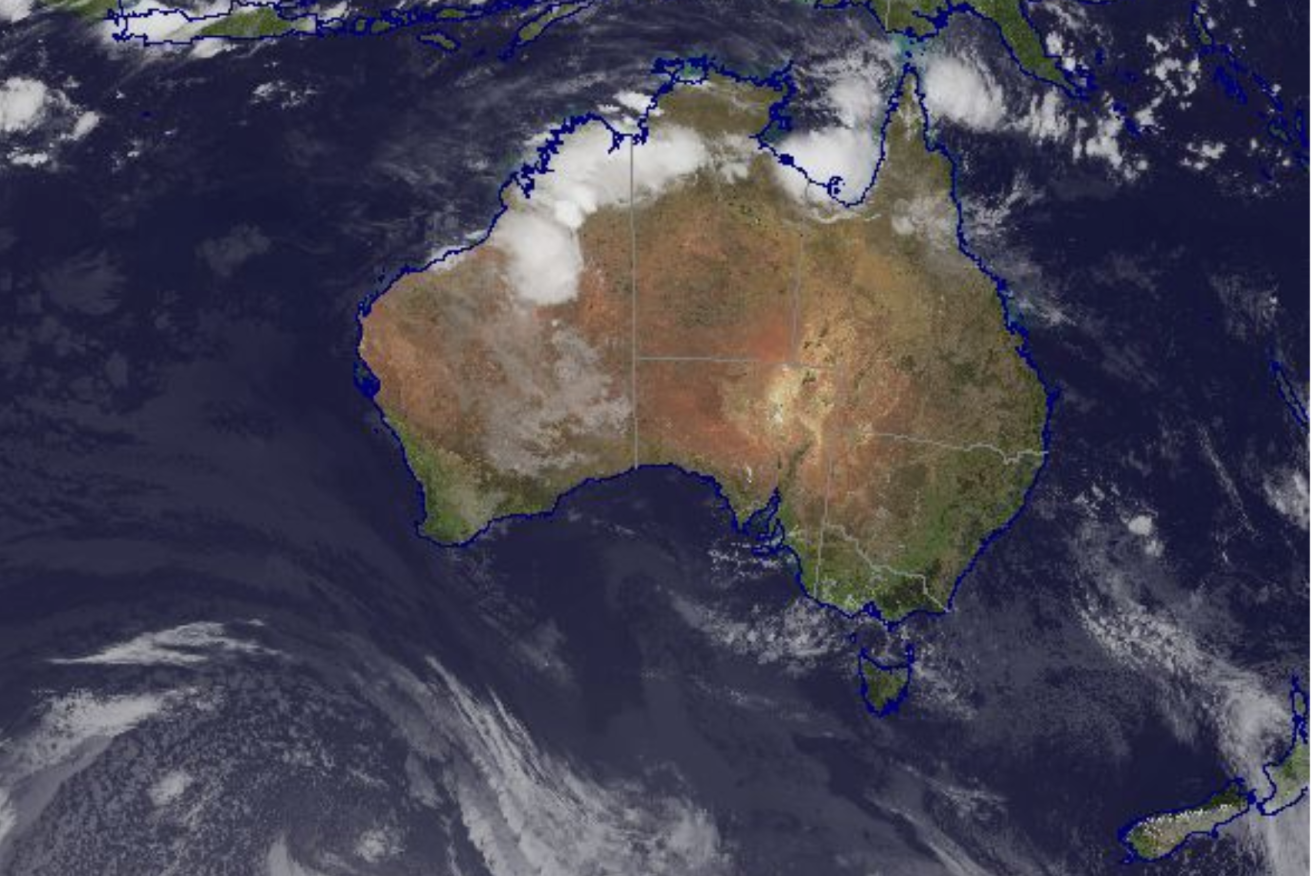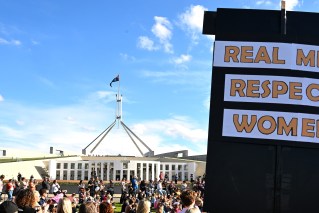Flying blind: What if Australia loses access to vital satellite data?
Satellites owned and operated by other countries, including China, provide the data needed for Australia to monitor the weather, natural disasters and the environment.

This Bureau of Meteorology image relies on satellite data from the Japan Meteorological Agency and NASA.
A federal parliamentary inquiry into the prospects of Australia developing a space industry has heard increasingly urgent calls for a sovereign satellite capability.
The Bureau of Meteorology has been relying on Earth observations from space for several decades, and currently assimilates data from over 30 satellites into the weather forecasting systems it uses every day.
To do so, however, the bureau relies on data from satellites belonging to China, Japan, the United States, Europe and Korea – “and there is no guarantee that access to satellite data will continue in the long term”.
“In recent years there has been an exponential growth in commercial satellite data providers offering new business models, resulting in potential threats and opportunities in the space industry,” the bureau told the inquiry.
“In the future, this may pose a risk to the volume of data the bureau can access if current arrangements for the free and open exchange of international satellite data are reduced.”
The CSIRO told the inquiry more than 140 government programs were reliant on “collaborative international forums” because Australia did not have its own satellites.
Geoscience Australia suggested the lack of a sovereign satellite capability had stifled innovation because the current arrangement was “exposing us to technical failures over which we have no control and the risk of abrupt policy changes by foreign governments and companies”. There was also no way for Australian stakeholders to monitor interference – whether accidental or deliberate.
Gold Coast company Gilmour Space Technologies told the inquiry Australian governments would need to invest heavily in the coming years but could expect a significant benefit.
“In this contested and competitive world, there is no question that Australia will need to develop sovereign space capabilities,” said the company, which is backed by the Queensland government.
“We currently spend over half a billion dollars a year on imported space data and capabilities. The global commercial potential is huge. The national security risks are high. And beyond just being inspiring, new space technologies will offer tremendous benefits to everyday Australians.”












